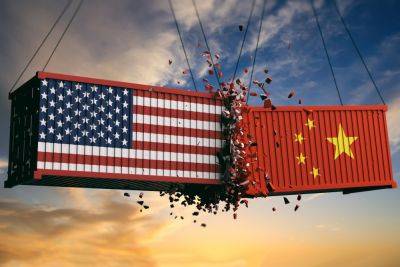U.S. and China trade divisions threaten a 'reversal' for global economy, IMF official warns
Differences between U.S.-led Western and China-aligned economic blocs threaten global trade cooperation and economic growth, a top official with the International Monetary Fund warned on Tuesday.
IMF Deputy Managing Director Gita Gopinath said in a speech at Stanford University that events such as the global pandemic and Russia's invasion of Ukraine have disrupted global trade relations in ways not seen since the Cold War.
"Increasingly, countries around the world are guided by economic security and national security concerns in determining who they trade with and invest in," she said, adding that this has resulted in countries increasingly picking sides between China and the U.S.
While strengthening economic resilience is "not necessarily bad," the trend of fragmentation threatens a move away from a "rules-based global trading system" and a "significant reversal of the gains from economic integration," Gopinath said.
Tensions between Washington and Beijing have been rising as the U.S. ramps up trade restrictions and sanctions on China, citing national security concerns, while worries over Beijing's advances in the South China Sea and the rhetoric around Taiwan have also soured sentiment.
The increasing tension between the world's two largest economies has been reflected globally, with over 3,000 trade restrictions imposed by countries worldwide in 2022 and 2023, more than triple compared with 2019, according to data compiled by the IMF.
Trade between the China and U.S. blocs has declined compared with trade among countries within the groupings, Gopinath said. The U.S. bloc mainly includes Europe, Canada, Australia and New Zealand, while China-leaning countries include Russia, Eritrea, Mali, Nicaragua and Syria.
Since the







